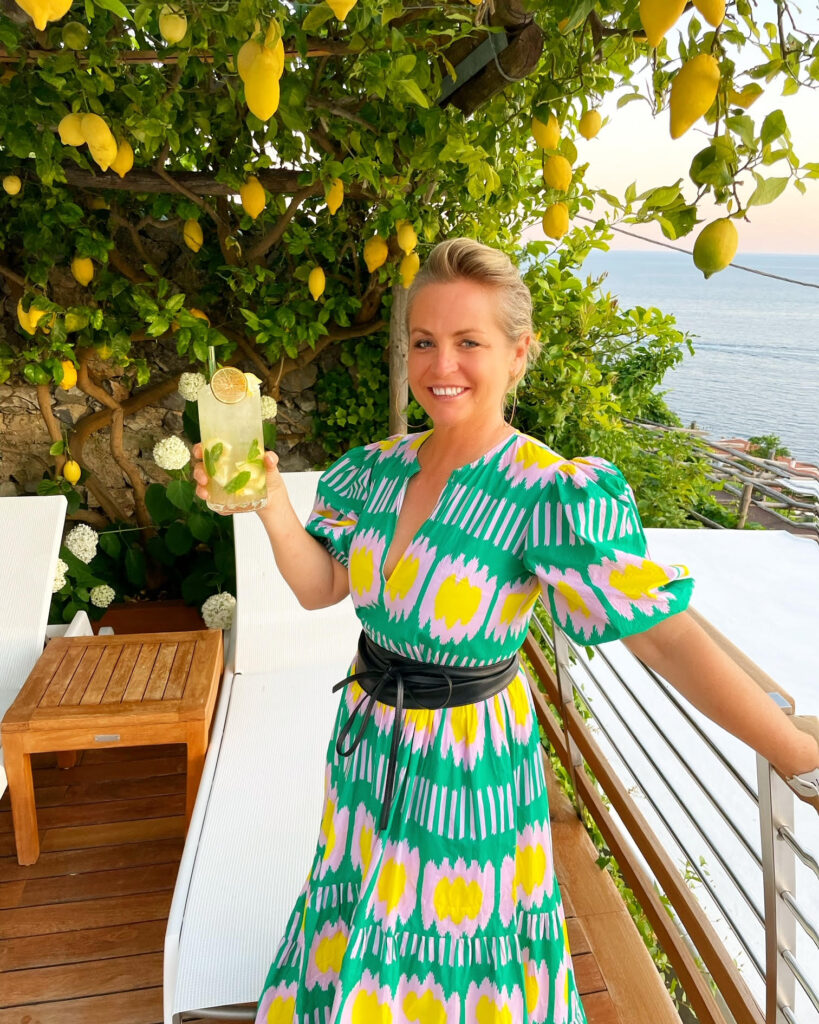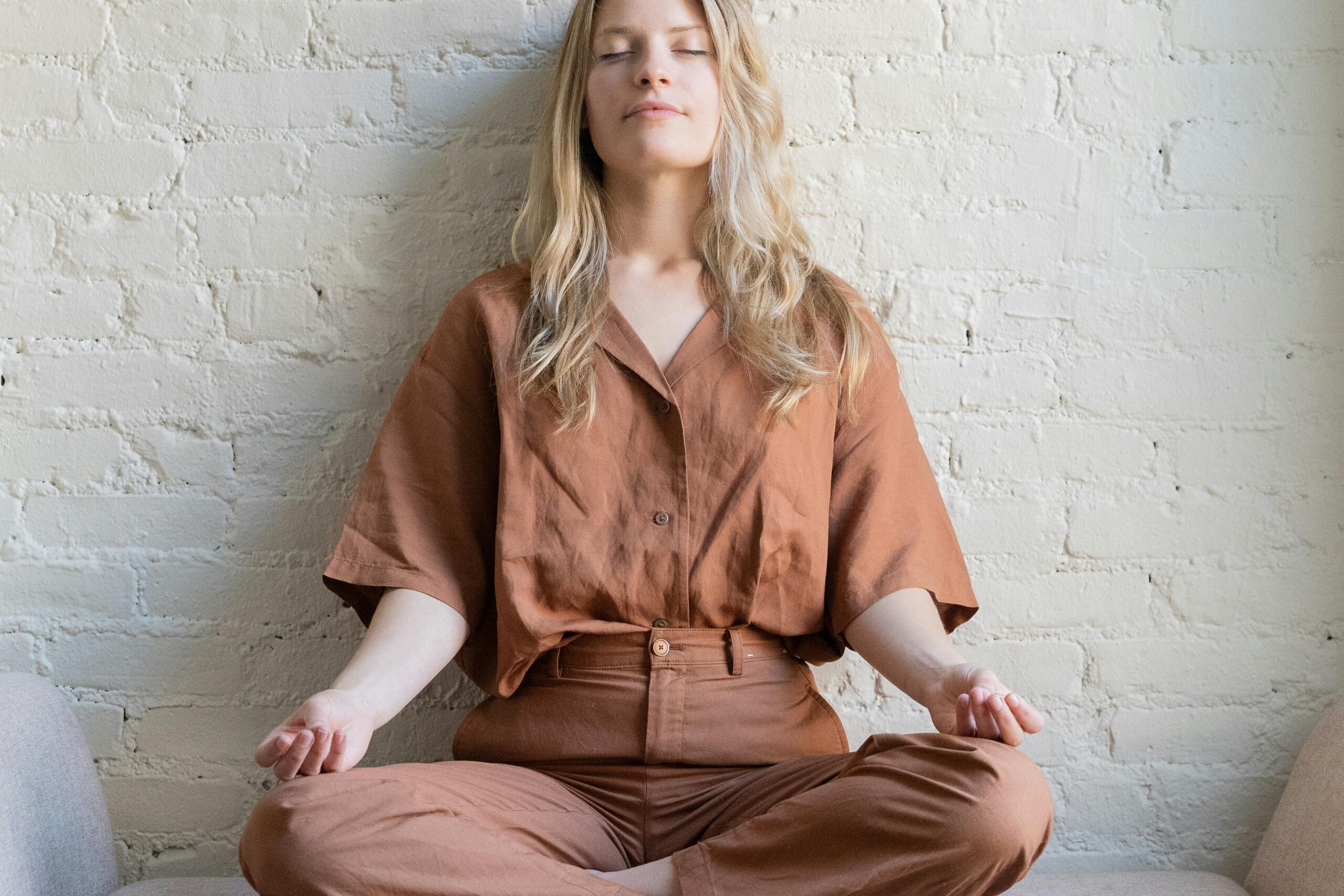“Equanimity is a state of mental or emotional stability and composure, particularly under stress or during difficult situations.“
Many people reported difficulty sleeping during the pandemic. For some, like me, the problem persisted, eventually turning into full-blown insomnia—a disorder that feeds on itself through anxiety, stress, and the emotional imbalances caused by this vicious cycle. Despite being a travel writer who frequently crossed time zones, I had never struggled with sleep. But when insomnia struck, I quickly realized how little the medical community knew about the condition, and I was left to find solutions largely on my own.
Through this journey, I revisited a practice I had used years prior but had lost touch with: meditation. During college, I took a class on this ancient Eastern practice as part of my religious studies minor in Buddhism at the University of Virginia. I kept up with the technique on and off throughout the years. During the height of my insomnia, I turned to meditation apps, experimenting with timers, guided courses, and sleep stories. Eventually, I invested in the Calm app. It costs $70 annually but ultimately felt worth it – and cheaper than endless doctor visits. (Calm did not cure my insomnia and this is not medical advice. It did help, however.)
After trying different narrators and their styles, I connected with the soothing voice and honest reflections of Jeff Warren. It was Warren who introduced me to the concept of equanimity.
What Is Equanimity?
Equanimity is a state of mental or emotional stability and composure, particularly under stress or during difficult situations. It became a key goal in my pursuit of mental health. Equanimity isn’t just about staying calm in the face of adversity, or ignoring bedtime irritations like the buzz of motorbikes or a snoring partner. It’s about cultivating a sense of balance—an inner stillness that remains steady despite life’s chaos. Achieving equanimity is hard; like enlightenment, it’s something we may strive for without fully mastering, but it’s worth the effort.
Equanimity allows us to observe our thoughts and emotions without becoming entangled in them. Warren often begins his guided meditations by reminding us that we have the power to choose our responses to the world around us.

Image courtesy of Pexels
As I delved deeper into equanimity, I found resonance in the words of Jon Kabat-Zinn, a pioneer in mindfulness-based stress reduction (MBSR). Kabat-Zinn describes equanimity as “the spaciousness of mind that allows you to be with things as they are without getting caught up in them or wishing them to be different” (Kabat-Zinn, 1990). This concept has become central to my practice. Instead of resisting life’s challenges, I am learning to acknowledge them without letting them dominate my emotions.
Developing a Meditation Practice
In the early weeks of incorporating meditation into my nightly routine, I noticed subtle changes in how I responded to daily stressors. Equanimity became more than a concept—it became something I actively practiced. Launching a new business brought numerous frustrations, but I began pausing before reacting, taking a moment to breathe, and allowing anxiety to pass. This approach has made a significant difference in my well-being. Rather than being overwhelmed by stress, I try to observe it as a temporary state—one I can acknowledge and release. I often use the mantra “this too shall pass” in moments of anxiety or frustration. Jack Kornfield’s words echo this practice: “Equanimity arises when we accept the way things are. It is a vast, deep, and even-minded space that is undisturbed by the constant flux of experiences” (Kornfield, 2008).
Equanimity has also proven valuable in managing daily challenges, from dealing with traffic to navigating difficult conversations. Sharon Salzberg, a prominent meditation teacher, describes equanimity as “the balance born of wisdom, seeing the truth of change and impermanence, allowing us to rest in the midst of it all” (Salzberg, 1995). Her words remind me that everything is transient. Sometimes the intransient, fleeting nature of life can trigger its own anxieties. Nothing can be relied upon as the only constant is change. We have to learn to accept that wisdom, too.
How Inner Calm Improves Relationships
One of the most significant benefits of equanimity is its impact on relationships. When we approach interactions with a calm and balanced mind, we can listen better, empathize, and respond with compassion. “What is the other person thinking at this moment?” “Maybe their reaction to me isn’t about me at all.” This perspective allows me to take things less personally, especially in a field like writing and publishing which involves constant feedback and rejection. Instead of reacting impulsively, I try to step back, observe my emotions, and choose responses that align with my values.
Equanimity is not just an ideal reserved for meditation; it is a practical state of mind that can enhance our mental health. My battle with insomnia led me to explore meditation, and through the teachings of Jeff Warren and the practice of equanimity, I am learning to find balance even if I’ve not mastered the skill in every moment. Accepting that imperfection is also a form of equanimity. As I continue this journey, I am reminded of the wisdom in the words of the Buddha: “Peace comes from within. Do not seek it without.”
References:
- Kabat-Zinn, J. (1990). Full Catastrophe Living: Using the Wisdom of Your Body and Mind to Face Stress, Pain, and Illness. New York: Delacorte.
- Kornfield, J. (2008). The Wise Heart: A Guide to the Universal Teachings of Buddhist Psychology. Bantam Books.
- Salzberg, S. (1995). Lovingkindness: The Revolutionary Art of Happiness. Shambhala Publications.

Founder and CEO of Azure Road, Lauren Mowery is a longtime wine, food, and travel writer. Mowery continues to serve on Decanter Magazine’s 12-strong US editorial team. Prior to joining Decanter, she spent five years as the travel editor at Wine Enthusiast. Mowery has earned accolades for her writing and photography, having contributed travel, drinks, food, and sustainability content to publications like Food & Wine, Forbes, Afar, The Independent, Saveur, Hemispheres, U.S. News & World Report, SCUBA Diving, Plate, Chef & Restaurant, Hotels Above Par, AAA, Fodors.com, Lonely Planet, USA Today, Men’s Journal, and Time Out, among others.
Pursuing her Master of Wine certification, she has also been a regular wine and spirits writer for Tasting Panel, Somm Journal, VinePair, Punch, and SevenFifty Daily. Mowery is a graduate of the University of Virginia and Fordham Law School, and she completed two wine harvests in South Africa.
Follow her on Instagram @AzureRoad and TikTok @AzureRoad



